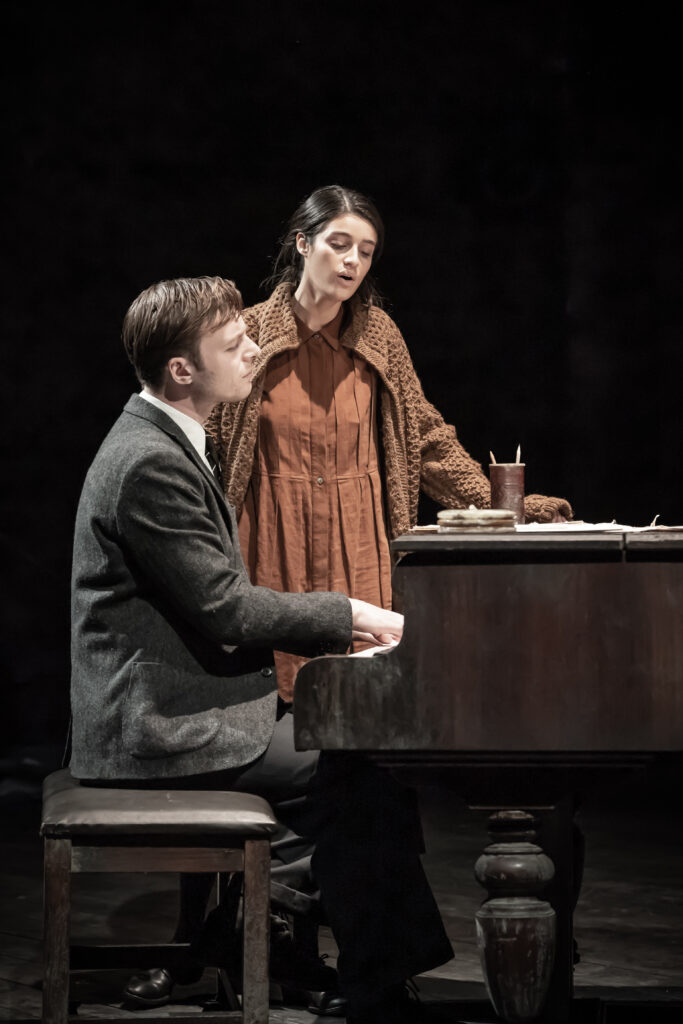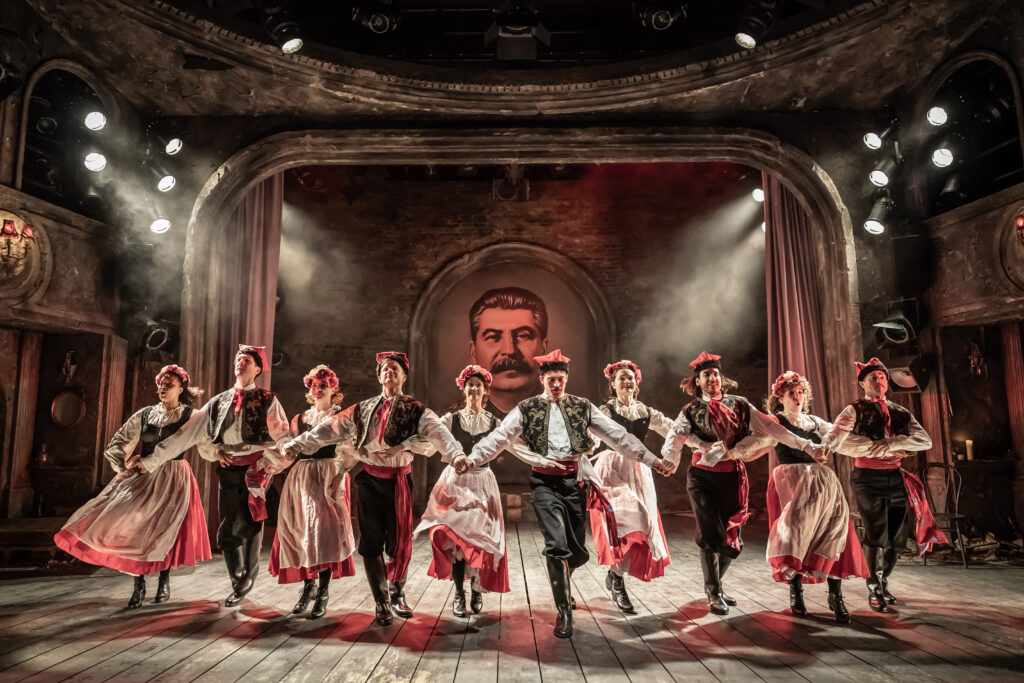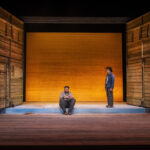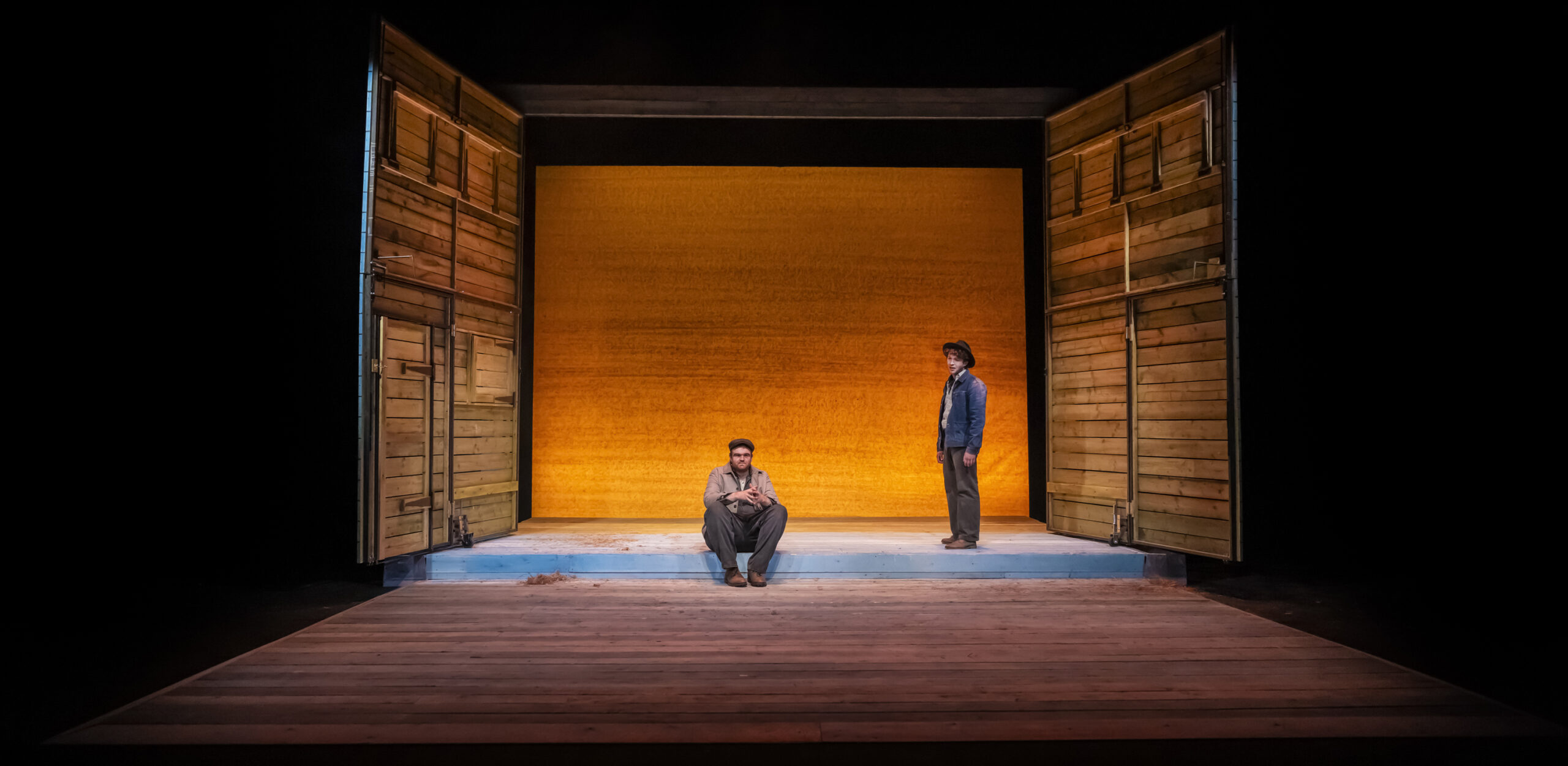
Cold War review – Almeida Theatre, London
Rating: ★★★★☆
It is a harsh winter inside the Almeida where Conor McPherson’s adaptation of Pawel Pawlikowski’s film Cold War opens at the Almeida, offering an antidote to those who have enough of the Christmas cheer outside the theatre’s doors.
The Second World War is over but another has begun; the Cold War hangs over Poland, where a group have been tasked with collecting and arranging the folksongs and dances of Poland for a national show commissioned by the Polish government. The Polish folk songs of the film, married with folk dances by choreographer Ellen Kane, are complemented with a combination of new and old songs by Elvis Costello.
Led by Kaczmarek (Elliot Levey), the composer Wiktor (Luke Thallon) and his partner, the choreographer Irena (Alex Young), are deep in rural Poland when they discover the raw talents of Zula (Anya Chalotra). Wiktor and Zula begin a passionate affair, destroying Wiktor and Irena’s unconvincing marriage and setting the smitten pair on a path that leads only to despair. With the show being transformed into a propagandist tool by a Government minister who sees power in music, Wiktor flees Poland for Paris with Zula later following him to where freedom, the unfamiliar and the unknown await.

Two Cold Wars are being fought here; despite the initial passion of their affair, the Cold War simmering outside is mirrored in the couple’s relationship. When director Rupert Goold gets it right, it’s a searingly beautiful tragedy of doomed love. Paula Constable’s lighting imbues a sense of the era in the production – as Wiktor flees, a spotlight catches him throwing shadows and shimmering light across his face, body and Jon Bausor’s crumbling set, in a scene that could be straight from The Spy Who Came in from the Cold or The Third Man.
Like much of McPherson’s work, spirituality comes to the fore. There is a struggle between good and bad throughout the play. Wiktor can only identify two categories for the folk songs he has collected: songs about love and songs about the Devil. Adrift in Paris, Zula longs for Poland where there are only two types of people: the good guys and the bastards. The pair wonder if they will end up in heaven, hell or purgatory, or, in an echo of McPherson’s The Night Alive, whether they might be in heaven already. McPherson’s text is full of naturalistic, understated speech; ‘Did you ever love me?’ Irena asks. ‘I must have,’ replies Wiktor. McPherson’s language cuts to the core.

The performances are captivating, particularly Thallon, who brings an incredible and devastating humanity to Wiktor; you can see him opening and closing as the play progresses, turning himself inside out. Chalotra is fierce as the melancholic outsider who doesn’t belong at home but can’t live away from it, and the always watchable Levey brings welcome off-beat relief to the play through his cockney-geezer-styled Kaczmarek who admits to being one of the country’s bastards.
It’s a play that burns incredibly slowly with Goold letting it unwind at its own pace. The use of the piano as the setting for many of the musical numbers ties the singers to the spot – as do performances using a static mic in a recording studio and on a nightclub stage – and there is something here about whether this is a play with songs or a musical. Cold War exists in a grey area in between; the songs do not always feel like they are driving the narrative forward, sometimes acting as stopping points amongst the action or signalling a change of era as the folk songs make way for slow jazz, jiving and 60’s girl groups. Those things combined do give an occasional sense of the play meandering along.
Costello’s music is best when it mourns, yearns and burns as the couple do. I Do (Zula’s Song), released on his 2020 album Hey Clockface, is a standout as Chalotra sings achingly; ‘I was yours and you are mine, to long for longer is a crime. But I do.’ This couple’s doomed love will haunt you long after you leave the Almeida, and the harsh winter, behind.















